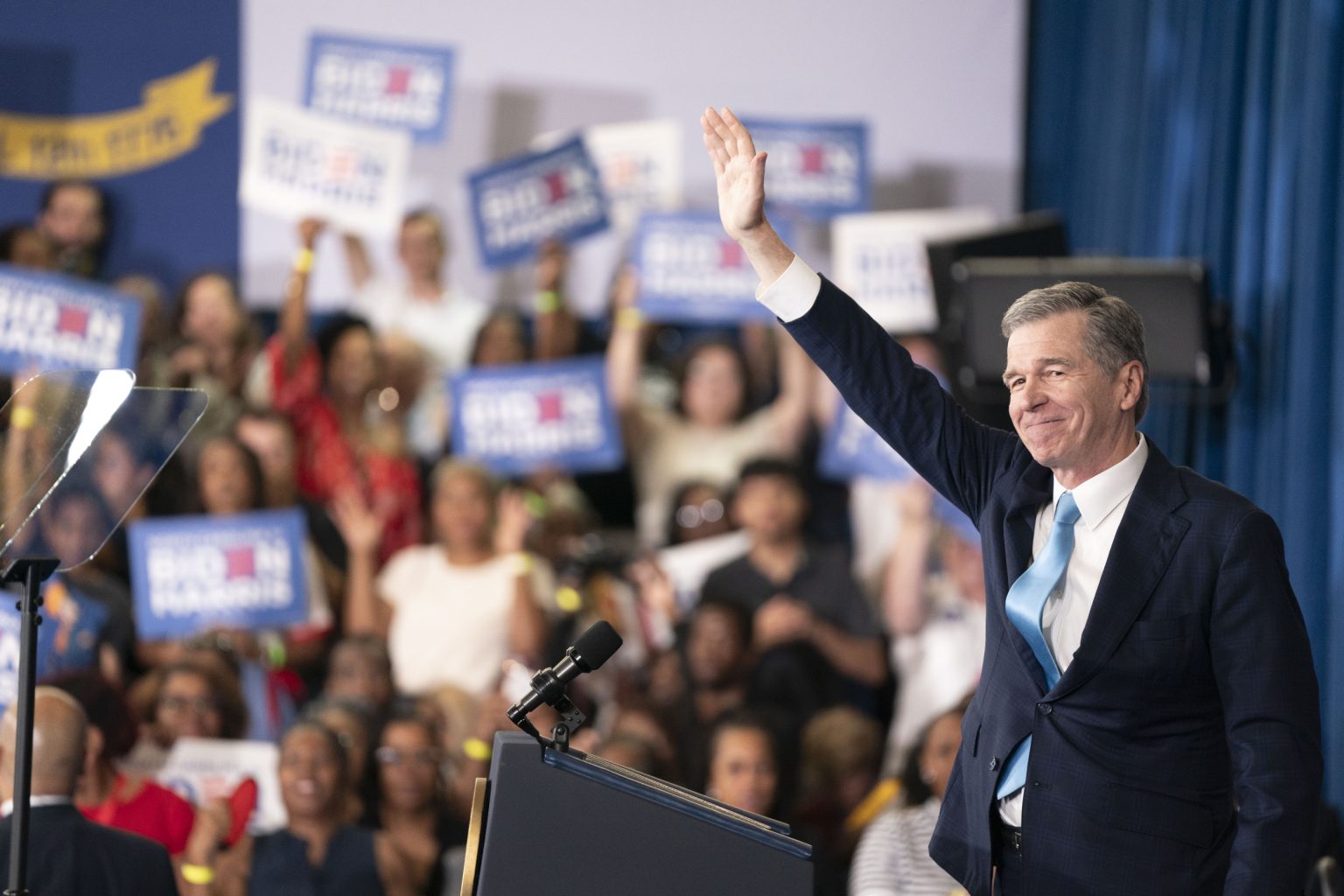In a surprising turn of events, Governor Roy Cooper of North Carolina has withdrawn his name from consideration as Vice President Kamala Harris’s potential running mate for the 2024 presidential election. Cooper’s decision comes amidst Harris narrowing down her list of vice-presidential candidates following President Biden’s unexpected exit from the race. The reasons behind Cooper’s withdrawal remain unclear, with both the Harris campaign and Cooper’s office choosing not to comment on the matter. Cooper, a seasoned politician with extensive public service experience in North Carolina, was viewed as a strong contender for the role, raising questions about the challenges and pressures facing potential running mates in this unique electoral cycle.
Cooper’s exit from consideration is significant, particularly coming soon after President Biden’s surprising departure from the race. Biden’s endorsement of Harris as his successor following a lackluster debate performance against former President Donald Trump has sparked discussions within the Democratic Party about leadership and electoral strategy. With Cooper no longer in the running, attention now shifts to the remaining candidates on Harris’s shortlist, which reportedly includes Senator Mark Kelly of Arizona, Governor Josh Shapiro of Pennsylvania, and Governor Tim Walz of Minnesota. Each of these potential running mates brings unique strengths to the ticket, with Kelly offering national security credentials, Shapiro potentially securing a key battleground state, and Walz providing a Midwest presence appealing to voters in a region that has often determined presidential outcomes.
The Harris campaign has been secretive about the selection process, with a spokesperson indicating that the vice president has directed her team to begin vetting potential running mates. This cautious approach reflects the high stakes involved in the decision-making process. As the remaining candidates undergo scrutiny from the media and the public, their past records, policy positions, and personal histories will be closely examined as indicators of their potential performance on the national stage. The compressed timeline for Harris’s decision adds pressure to the process, with the Democratic National Convention approaching and the general election campaign ramping up, requiring a balance between thorough vetting and presenting a unified ticket to American voters.
Cooper’s withdrawal raises questions about the challenges and pressures facing potential running mates in this unique electoral cycle. His decision to step back from national consideration at a critical moment in the campaign underscores the complexities and uncertainties of presidential politics. With Cooper out of the running, the focus now turns to the remaining candidates on Harris’s shortlist, who will undergo intense scrutiny as Harris approaches her decision. The selection of a running mate is a crucial decision that will impact the future direction of the Democratic Party and could have significant implications for the outcome of the 2024 presidential election.
The upcoming presidential election is shaping up to be a closely watched and highly contested affair, with the selection of a vice-presidential candidate playing a crucial role in shaping the outcome. The three remaining candidates on Harris’s shortlist bring unique strengths and experiences to the table, each with the potential to sway voters in key battleground states. As the selection process unfolds, the media and the public will closely monitor the candidates, analyzing their backgrounds and policy positions as indicators of their suitability for the role of vice president. With the stakes higher than ever, Harris’s decision will be closely watched and scrutinized, as the Democratic Party aims to present a united front in the upcoming election campaign.


